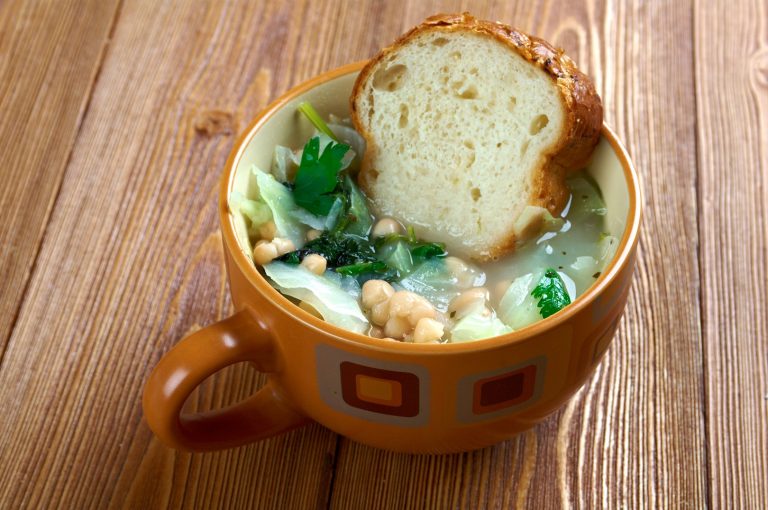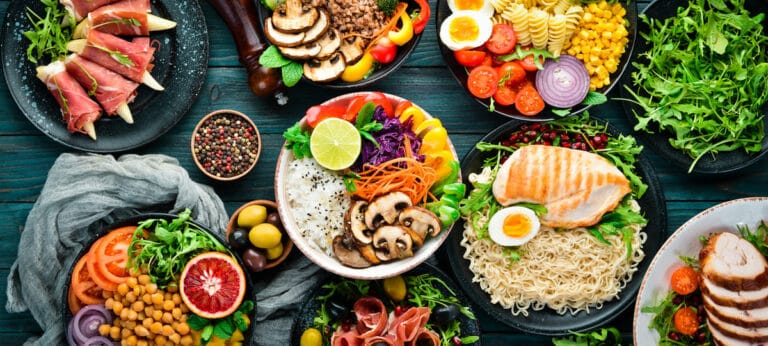Did you know that you need to be drinking more water when pregnant? Pregnancy is a time when your body needs extra fluid to support the growing baby. But how much is enough to drink? In this post, we’re going to discuss how many bottles of water you should aim to drink each day while pregnant, we’ll also cover some tips for staying hydrated. So, read on to find out more!
Pregnant women should drink at least eight 8-ounce glasses of water or other fluids each day to stay hydrated and help their bodies function properly. Some women may need more fluids, especially if they’re experiencing morning sickness or increased urination. When you’re pregnant your body needs more water to support the growth of the fetus and to help with circulation, digestion, and temperature regulation. But how many water bottles should you actually drink in a day? Here’s what you need to know.
In This Article
How much water should you drink each day while pregnant?
As we have known that pregnant moms need more fluids to stay hydrated. The American College of Obstetricians and Gynecologists (ACOG) recommends that pregnant women drink 8 to 12 cups (64 to 96 ounces) of water a day. So, it’s clearly stated that during pregnancy, you need to drink at least 3 water bottles (should be 1 Litre water bottle) a day. Water is necessary for the placenta to function properly and for the body absorb nutrients.
Additionally, staying hydrated is also important for your baby’s development. When you’re pregnant your body temperature is usually higher than normal, so you might feel hot all the time and sweat a lot. Drinking water can help you regulate your body temperature and keep you cool. It’s also crucial for preventing complications that can lead to early labor.
However, during pregnancy, drinking too much water can also be dangerous. This is because your kidneys are working hard to get rid of extra fluids and if you drink too much water, it can cause a condition called water intoxication or hyponatremia. So it’s important to drink water throughout the day, but don’t overdo it. If you’re not sure how much water you should be drinking, talk to your doctor or midwife.
What are the benefits of drinking enough water during pregnancy?
Drinking water is essential for pregnant women because it helps to keep the body hydrated. Water is also necessary to help the body flush out toxins and waste products. Below are some common benefits of drinking adequate water during pregnancy:
Prevent Urinary Tract Infections (UTIs)
Pregnant women are susceptible to UTIs because of the changes in their urinary tract. Drinking can help to flush out bacteria that cause UTIs. Generally, UTIs can cause a burning sensation or pain while urinating, cloudy urine, strong-smelling urine, and pelvic pain. But if you are drinking an adequate amount of water, it will help to keep your urine diluted and less likely to allow bacteria to grow.
Prevent overheating
Our body needs to sweat to regulate its temperature, and pregnant women are more prone to overheating because their metabolism is increased. Drinking enough water will help the body sweat and stay cool. Drinking water nutrient-rich blood cells helps them to function properly. Staying hydrated is also important for a baby’s development and helps the placenta to function properly.
Avoid pregnancy complications
Dehydration can cause pregnancy complications such as premature labor, low birth weight, and preeclampsia. Pregnant moms who drink enough water are less likely to experience these complications. Although water is also helpful to control morning sickness and other pregnancy symptoms, make sure to drink water that is clean and free of contaminants.
Boost energy levels
During pregnancy, a woman’s blood volume increases by 40-50%. This increase in blood volume can lead to fatigue and low energy levels. Consuming water can help to combat fatigue by keeping the blood flowing properly and delivering oxygen and nutrients to the cells. Proper water intake is especially important for pregnant women who are also dealing with morning sickness.
Prevent constipation
If a pregnant woman drink plenty of water, it can help to prevent constipation which is a very common problem during pregnancy. As we have known during pregnancy, constipation can be caused by the pressure of the growing uterus on the rectum and by hormonal changes. In this case, water will add bulk to the stools and help them to move through the intestines more easily.
Help to control nausea and vomiting
Dehydration can make nausea and vomiting worse. For many pregnant moms, these symptoms are most common during the first trimester but can occur at any point during pregnancy. It is easy to understand that when your fluid intake is low, it can cause dehydration and make nausea and vomiting worse. So, drinking water is one of the simple ways to help control these symptoms.
What happens if you don’t drink enough water while pregnant?
Although during pregnancy staying hydrated isn’t only important for the mother’s health, but also for the baby’s development, not drinking enough water can lead to some consequences. There are many risks associated with not drinking enough water during pregnancy, including:
Dehydration
If a pregnant woman doesn’t drink water, she can become dehydrated. Dehydration can also cause Braxton hicks contractions and can lead to several problems, such as:
1. Low amniotic fluid: Drinking plenty of fluids is important for maintaining the correct amount of amniotic fluid. Amniotic fluid is the liquid that surrounds and protects the baby during pregnancy. If pregnant women becomes dehydrated, it can cause the amniotic fluid levels to drop, which can lead to complications such as preterm labor or birth.
2. Develop Kidney stones: When the body is dehydrated, the level of calcium in the urine rises. This can lead to the formation of kidney stones. Pregnant mothers need to stay hydrated in order to avoid mild dehydration during pregnancy.
3. Swelling: Pregnant moms often retain fluid, which can lead to swelling in the hands, feet, and face. Not drinking enough fluids, especially water can make this problem worse.
Excessive fatigue
Pregnant women often experience fatigue, but not drinking enough fluids can make this problem worse. Dehydration can cause pregnant women to feel even more tired than usual. If you’re dehydrated, your body has to work harder to function properly, which can lead to fatigue. Although water drink during pregnancy is important, it’s also important to drink fluids after you give birth. According to sources, postpartum women who were dehydrated had higher levels of fatigue than those who were not dehydrated.
Increase risk of pregnancy complications
Not drinking sufficient water can lead to several pregnancy complications, such as premature labor, preeclampsia, and gestational diabetes. In severe cases, moms-to-be develop a condition called hyponatremia, which is a low level of sodium in the blood. This can be caused by drinking too much water or not enough water. While it’s important to stay hydrated during pregnancy, it’s also important to drink the right amount of fluids.
Inadequate breast milk production
Drinking fluids, especially water, is important for adequate breast milk production. Not drinking sufficient water can lead to a low milk supply and can be difficult to increase once it has decreased. However, if you feel thirsty, your body is already dehydrated, so it’s important to drink fluids throughout the day, even if you’re not thirsty. According to a prospective observational cohort study published in 2016, dehydration can result in a decreased milk supply within 24 to 48 hours postpartum.
Digestive problems
When you’re pregnant, your digestive system slows down, which can lead to constipation. Drinking enough fluids can help keep things moving through your system and prevent constipation. However, drinking too much fluid can also lead to digestive problems. If you drink too much water, it can dilute the electrolytes in your body, which can lead to diarrhea. It’s important to strike a balance when it comes to hydration and pregnancy.
Tips we should know
Furthermore, pregnancy is a time when you need to be extra careful about what you eat and drink. Here are some tips to help you stay hydrated:
- Drink water first thing in the morning to rehydrate after a long night’s sleep.
- Carry a water bottle with you everywhere you go and take regular sips throughout the day.
- If you’re feeling nauseous, try sipping on ice-cold water or sparkling water to help settle your stomach.
- Make sure you drink tap water, as it’s the safest and most affordable option.
- Drink fruit juice and coconut water for an added boost of vitamins and minerals.
- Avoid sugary drinks like soda, as they can contribute to dehydration.
- Avoid coffee and tea, as they can cause you to lose fluids.
- If you’re exercising, make sure to take energy drinks or water with electrolytes to help you stay hydrated.
- In hot weather, drink cold water or put ice cubes in your water to help you stay cool.
- If you’re vomiting or have diarrhea, make sure to replace the fluids you’re losing by drinking clear liquids like soup, juice, and water. You can also suck on ice chips or popsicles.
Moreover, by following the above-mentioned tips, you can make sure that you’re getting enough fluids and staying hydrated during pregnancy. If you have any concerns about your fluid intake, be sure to talk to your healthcare provider.
The Bottom line
Water is essential for pregnant women and their babies. Drinking enough water can help prevent dehydration, constipation, and other pregnancy-related problems. Try to drink at least 8 glasses of water a day. If you are having trouble drinking that much water, try adding some fruit or vegetables to your diet. Eating water-rich foods can also help you stay hydrated. However, if you are still having trouble staying hydrated, talk to your doctor about other options.










![Home Renovation Guide [2025]](/app/uploads/2021/04/design-hacks-1-378x300.jpg)
